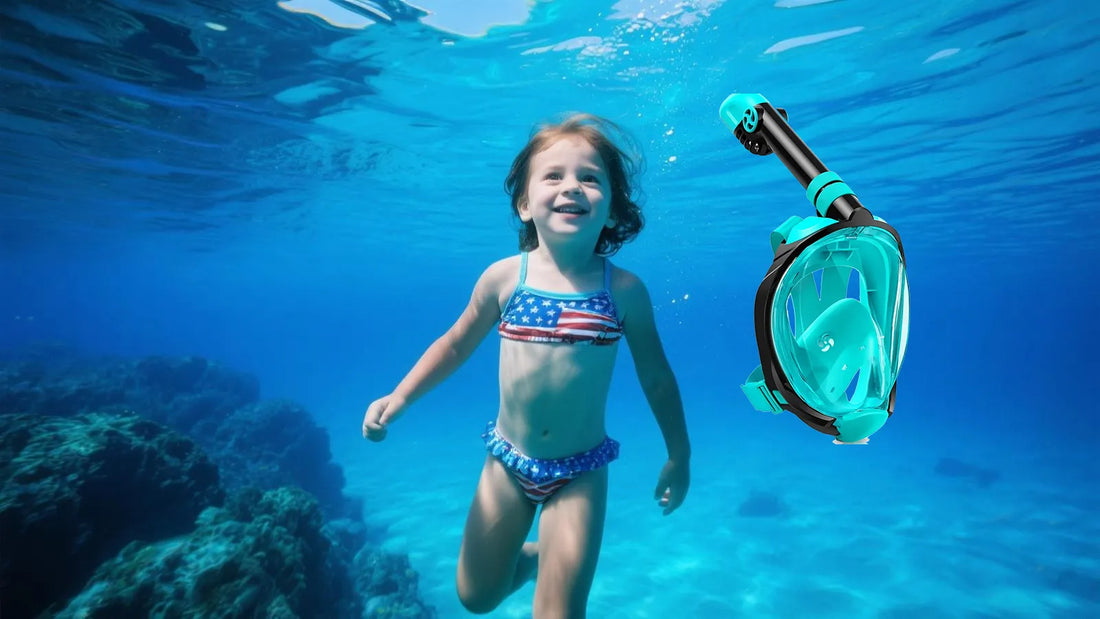Snorkeling is a fantastic way for kids to explore the underwater world, but many parents wonder, 'What age can kids snorkel?' The answer isn't one-size-fits-all, as it depends on various factors like swimming ability, comfort in water, and maturity. This guide will help you determine the right age for your child to start snorkeling and provide essential tips to ensure a safe and enjoyable experience.
Understanding the Basics of Snorkeling for Kids
Snorkeling involves swimming on the water's surface while breathing through a snorkel tube and observing underwater life through a mask. It's a low-impact activity that doesn't require advanced swimming skills, making it suitable for children. However, kids need to be comfortable in the water and able to follow basic safety instructions.
What Age Can Kids Start Snorkeling?
Most experts agree that children as young as 4 or 5 can start snorkeling, provided they are confident swimmers and can follow directions. At this age, kids can use basic snorkeling gear and enjoy shallow, calm waters. However, every child is different, and some may not be ready until they are older. It's essential to assess your child's readiness rather than relying solely on age.
Signs Your Child Is Ready to Snorkel
Before introducing your child to snorkeling, consider the following signs of readiness:
- They can swim independently and confidently in deep water.
- They are comfortable wearing a mask and snorkel.
- They can follow safety instructions and stay calm in new situations.
- They show interest in marine life and underwater exploration.
If your child meets these criteria, they are likely ready to try snorkeling.
Choosing the Right Snorkeling Gear for Kids
Proper gear is crucial for a safe and enjoyable snorkeling experience. Here's what to look for when selecting equipment for your child:
- Mask: Choose a mask that fits snugly without being too tight. It should have a soft silicone skirt for comfort and a wide field of vision.
- Snorkel: Opt for a simple, easy-to-use snorkel with a splash guard to prevent water from entering.
- Fins: Fins should fit well and be easy for your child to put on and take off. Avoid overly long fins, as they can be difficult for kids to manage.
- Life Vest: A well-fitted life vest is essential for added safety, especially for younger or less confident swimmers.
Safety Tips for Kids Snorkeling
Safety should always be the top priority when snorkeling with kids. Follow these tips to ensure a safe experience:
- Always supervise your child closely, even if they are strong swimmers.
- Choose calm, shallow waters with good visibility for their first snorkeling experience.
- Teach your child to breathe slowly and calmly through the snorkel.
- Encourage them to stay close to you and avoid venturing too far from the shore.
- Be mindful of marine life and teach your child to observe without touching.
Making Snorkeling Fun for Kids
To make snorkeling an enjoyable activity for your child, focus on creating a positive and exciting experience. Here are some ideas:
- Start with a practice session in a pool or shallow water to build confidence.
- Point out interesting fish, coral, and other marine life to spark their curiosity.
- Bring an underwater camera to capture their discoveries and create lasting memories.
- Turn snorkeling into a game by challenging them to spot specific fish or objects.
Common Challenges and How to Overcome Them
Some kids may face challenges when starting snorkeling, such as fear of water, difficulty breathing through the snorkel, or discomfort with the gear. Here's how to address these issues:
- Fear of Water: Gradually introduce your child to the water and let them get comfortable at their own pace.
- Breathing Difficulties: Practice breathing through the snorkel in a pool or shallow water before heading to the ocean.
- Gear Discomfort: Ensure the mask and snorkel fit properly and adjust them as needed to eliminate discomfort.
Benefits of Snorkeling for Kids
Snorkeling offers numerous benefits for children, including:
- Improving swimming skills and water confidence.
- Encouraging curiosity and a love for nature.
- Providing a fun and active way to explore the outdoors.
- Teaching respect for marine life and the environment.
When to Seek Professional Guidance
If you're unsure about your child's readiness or want to ensure they learn proper techniques, consider enrolling them in a snorkeling class or hiring a professional guide. These experts can provide valuable instruction and help your child feel more confident in the water.
Snorkeling can be an unforgettable experience for kids, opening their eyes to the wonders of the underwater world. By choosing the right age, gear, and location, you can create a safe and enjoyable adventure that your child will cherish for years to come. So, what are you waiting for? Dive in and start planning your family's next snorkeling trip today!

